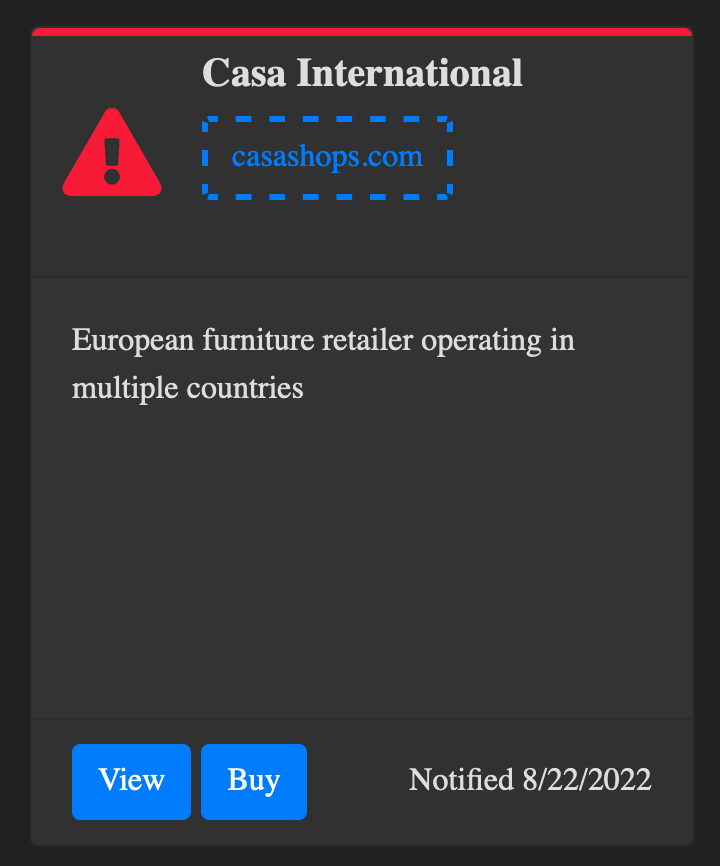Bringing cybersecurity globally to critical and complex key activities
Europe News
RagnarLocker ransomware group leaked personal information about TAPAir
The RagnarLocker ransomware group has finally disclosed the personal information of around 9,000 customers of TAPAir, the Portuguese airline, including customers' names, dates of birth, addresses, nationalities, genders, emails, loyalty IDs and phone numbers. No information has been released about any ransom negotiations. Read more about it : here

Montenegro under a possible russian cyberattack
Le petit pays des Balkans ciblé par des cyberattaques. Des institutions gouvernementales du Monténégro ont été visées samedi 27 août et depuis la veille par une importante attaque informatique. Certains responsables y voient la main de la Russie, même si le Premier ministre, Dritan Abazovic, reste prudent sur l'origine de cet acte. Il s'agit de la deuxième cyberattaque en une semaine, après une première vague ayant frappé des institutions du pays, dans la foulée d'une motion de censure qui a renversé son gouvernement le 19 août. Read more about it : here

ENSIACET school hit by a cyberattack
According to a tweet and a photo shared by Valérie Marchive, editor-in-chief of "MAG IT", the ENSIACET school was hit by a cyber attack on Tuesday 13 September, disabling access to the Internet and business applications. On the notice board set up by the school, the school itself indicates that the attack is on a large scale. No further information is available to define the type of attack or its origin. Read more about it : here

Phoenix declared they will target hospitals as a response to attacks on Russia
The pro-Russian hacktivist group Phoenix said on its Telegram channel that after seeing an increase in attacks by pro-Ukrainian cyber groups against the daily lives of Russian citizens, they will now target hospitals and social organisations. Read more about it : here

Italy's GSE energy company targeted by a cyberattack
Italy's state-owned energy services firm GSE said on Monday its gas purchases were guaranteed despite a hacking attack on its IT systems that happened overnight. The company added its website and portals were temporarily suspended to secure data. GSE has been buying gas to boost Italy's stockpiles and help fill the country's gas storage system to at least 90% of capacity by year-end. Read more about it : here

Atos and Eolas has been hit by a cyber attack
Both Atos and Eloas suffered cyber attacks over the weekend of 9-11 September. Eloas reportedly announced that it had suffered an "intrusion". On Sunday 11 September, the company said that the incident had been resolved and that all its services were operational again. However, according to MagIT, some of its sources, users of a virtual private server, said they had problems with the computer systems and had not heard from the Eolas teams since Saturday morning at 11am. Orange services have not made any further announcements on this subject. The company Atos has had part of its outsourcing platform affected by a cyber attack. According to MagIT, this is what the Agence du Numérique en Santé (Digital Health Agency) indicated on its website on the morning of Friday 9 September before the announcement was deleted after a few hours. The publication stated that "victim of a cyber attack on its systems, the publisher Atos has taken security measures by temporarily interrupting certain web services". Read more about it : here

Moscow university was hit with a cyberattack allegedly by Ukraine
Hacktivists or the Ukrainian state, with possible support from "Langley" (CIA), cyber-attacked Moscow University during a master's degree in hybrid warfare. The university's security teams claimed that it was apparent that part of the attack originated in Washington and part in Kiev. According to these claims, some US authorities wanted to disrupt the university's hybrid warfare programme. Read more about it : here

Avos Locker claims the ransomware attack on Casa
According to Valery Marchive, managing editor of "MAG-IT", an attack on the Belgian-based Casa Shop on August 8 was claimed by the cybercriminal group AvosLocker. The amount of the ransom or the nature of the data has not been communicated, however it seems that no customer data has been stolen. Read more about it : here

Phishing campaign targeting Poland
A phishing campaign is currently targeting Poland, with attackers posing as "binzes.gov.pl.", a public service for entrepreneurs. The email typically contains: "The notification will be available on your authorised account until 09-17-2022 and if you do not read it within the specified period, appropriate consequences will be triggered (...)". A copy of the notification mentioned in the fake email is included in the email attachment but it is a fake document which is actually a malicious web script. When it is opened, the computer is infected. Read more about it : here

Suhl city residents data exposed on the Darknet after cyberattack
Hackers apparently also tapped into sensitive data of residents during the attack on the Suhl city administration in March. Account numbers, dates of birth and telephone numbers of Suhl residents have surfaced on the so-called Darknet. In response, the left-wing parliamentary group in the state parliament is calling for a cyber aid service for digital emergencies affecting critical infrastructure. Read more about it : here